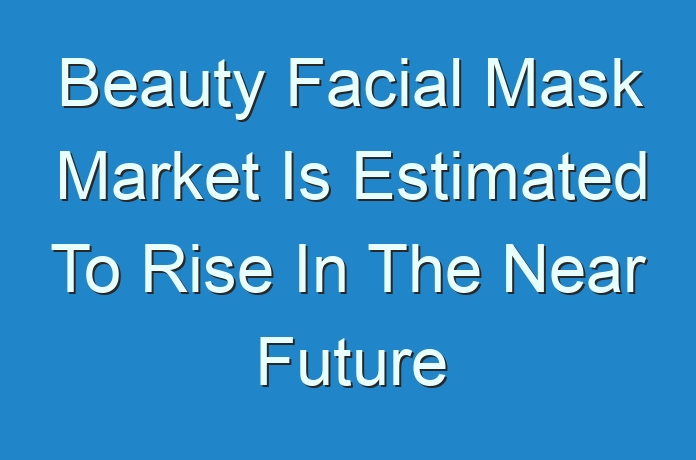
Transparency Market Research delivers key insights into the global beauty facial mask market. In terms of revenue, the global beauty facial mask market is estimated to expand at a CAGR of ~8% during the forecast period, owing to numerous factors regarding which TMR offers thorough insights and forecasts in this report.
A beauty facial mask is a category of cosmetics that are usually formulated as creams, gels, serum, or sheets purposed to deliver improved skin appearance and quality. Beauty facial masks are marketed in varied packaging and compositions, and are mostly bought based on skin type or specific skin concerns. For instance, clay or mud masks are considered more suitable for the oily skin type, whereas cream-based masks are preferred for dry skin type.
Request for a sample: https://www.transparencymarketresearch.com/sample/sample.php?flag=S&rep_id=77140
In the beauty facial mask report, TMR predicts that rising demand for anti-aging and dehydrated skincare products would significantly drive the market. Exponent growth in the aging population is the key factor contributing to the decision making of consumers of this niche cosmetics market segment. Besides, the evolution of innovative face mask products such as sheet masks and their ability to offer hassle-free and natural skin enhancement qualities is also likely to drive the global beauty facial masks market.
In the beauty facial mask market report, the market has been broadly segmented in terms of mask type, ingredient, packaging type, brand type, distribution channel, and regions. The mask type segment includes clay masks, sheet masks, cream masks, thermal masks, peel-off masks, gel masks, and others. Sheet masks are expected to dominate in terms of value as well as volume. The burgeoning trend in personal beauty enhancing products are pushing growth in the sheet face masks market. In terms of ingredient, the market has been segmented into organic and inorganic. In the coming years, organic or natural beauty facial masks are anticipated to gain a higher growth trajectory, owing to the ongoing shift toward chemical-free and natural skincare products.
Ask for brochure:
https://www.transparencymarketresearch.com/sample/sample.php?flag=B&rep_id=77140
Based on packaging type, the market has been segregated into tube, jars/bottles, and sachets, where the market for sachets is expected to account for majority share due to the flexibility of transportation and low cost of packaging compared to other methods. Based on brand type, the market has been segmented into mass and prestige/luxury; based on distribution channel, the market is segmented into online and offline channel. During the forecast period, online retail sales of beauty facial masks are expected to grow at a noteworthy pace.
Beauty Facial Mask Market: Prominent Regions
Presently, Asia Pacific dominates the global beauty facial mask market, owing to the presence of a massive consumer base for face care products. Demand for beauty facial masks in the region is primarily driven by the usage of masks in daily skincare routine treatment of the majority population.
Furthermore, the Asia Pacific market is also forecast to gain substantial growth rate during the forecast period. China is the largest Asian market for beauty facial masks, followed by India and Japan. On the other hand, the North American market is majorly driven by the demand for masks offering anti-aging properties. The growing demand for luxury skincare products is also likely to fuel the beauty facial masks market in North America as well as Europe.
Beauty Facial Mask Market: Key Players
Key players operating in the global beauty facial mask market include The Estée Lauder Companies Inc., Lancer Skincare, L’Oréal S.A., Shiseido, Unilever, Procter & Gamble, Amorepacific Corporation, C.F.E.B. Sisley SAS, Johnson & Johnson, and Elizabeth Arden, Inc. Companies operating in the beauty facial mask market are extensively focusing on introducing innovative products in order to gain more market share.
Read Latest News Publication:





